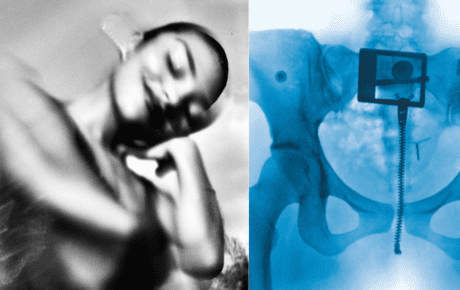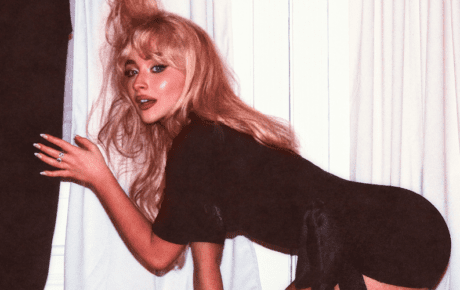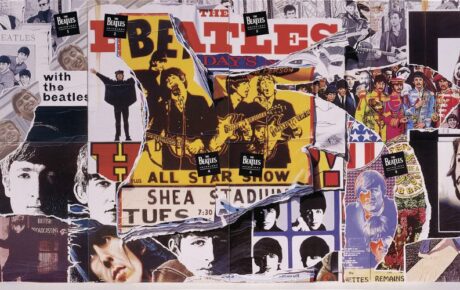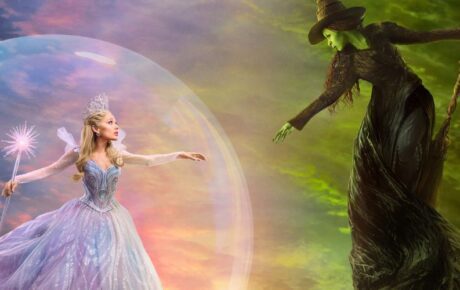The most powerful force in music is not the artist’s mystique or a catchy tune, it’s the teenage fangirl that sits on her phone in her bedroom pulling all the strings. Switching between her Instagram and her stan Twitter account, the fangirl knows every single update before you ever will. She sits in her poster-covered kingdom, overseeing the world of pop and predicting (without a fault) who will next rise to superstardom. She’s wise, she’s brave, and she’s got all the time, disposable income and gusto to commit to someone forever. And it’s time the world started listening to her.
The belittlement of the fangirl is nothing new. It stems from the societal view that deems anything a teenage girl is interested in to be lame, a phase, or just downright idiotic. Despite being the ones who set the trends, teenage girls are often ridiculed for their tastes; and when it comes to music it’s no different. Broken down into different levels of crazy, the fangirl is constantly categorised as a manic, screaming, crying mess who only bases success off of who’s attractive and who’s not. They show up, they fill sold-out arenas, they spend thousands of dollars. They influence. So why are they not taken seriously?
From Beatlemania in the ‘60s to K-pop stans today, the reputation of a fangirl surprisingly hasn’t changed. The biggest crime an artist could still ever commit is having a teenage girl fanbase. For the girls that backed The Beatles, the reason as to why they behaved the way they did was completely overlooked. They were grouped in with those with severe mental illnesses, deity and supernatural worshippers, religious cults and, hilariously, the word fangirl was often translated to ‘masturbation fantasising.’ But all these girls ever did, and ever do, is just support. It was their support that led John Lennon to famously say “we’re more popular than Jesus” and it was their support that kickstarted an early wave of feminism and girl power. What happened during Beatlemania was not different to what we see today; girls from all walks of life banding together to beautifully support and just love their favourite musicians.
As the 21st century rolled in, so too did a new digital age and a fangirl generation. These new fangirls were savvier and arguably more powerful, equipped with more technical knowledge than anyone actually realised. They also, coincidentally, had all the free time in the world. With devices strapped to their hips at all times that allowed them access to updates as soon as they happened, these fangirls became unstoppable. They banded together not just physically at concerts but over social media all around the world, sharing their recorded videos, stories, fan edits and theories and creating a community so large it became impossible to tell where it began and where it ended.
While the debate still goes on between One Direction’s Directioners and Justin Bieber’s Beliebers as to who actually ran the world from 2010-2015, both fandoms have remained as two of the most iconic ones from the past 50 years. They also both remain as two of the silliest and tasteless. Despite Justin Bieber continuously breaking records (surpassing Elvis and The Beatles, to just name a few) and literally being one of the biggest and most influential pop artists of the 21st century, he’s spent his entire career trying to get the world to just take him seriously; and so have his fans. His army of fangirls have put him up on a pedestal that the world deems to be unworthy. And why? Just because they’re fangirls.
It’s an offensive, ridiculous narrative that we’ve unfortunately seen time and time again. An artist’s merit is based on who their fanbase is; and if it’s primarily teenage girls than they’re passed off as being simply untalented. But for a generation that is scarily so connected, doesn’t it make sense that these girls would have all the information in front of them? They do their research; they know their musical history. They can listen to both classic rock and teen pop in the same playlist on Spotify. This is a whole new world, one that doesn’t have you lining up just to purchase a record or waiting to hear what’s new on the radio. Teenage girls are constantly plugged in to the entire world, we shouldn’t be taking their recommendations so lightly.
For Taylor Swift’s Swifties, they saw the potential in the star right from the start, but the rest of the world waited until her fifth album 1989 to notice. Now? Taylor Swift is credited by critics and traditional music lovers alike for her songwriting and musical ability (and her recent album folklore has only just gathered her more fans). But it took 5 albums for everyone to believe her teenage fans. When looking at K-pop, the entire phenomenon has the fangirl to thank for cracking it into the West so successfully. K-pop stans are the biggest fandom in the world right now and they have the ability to make legitimate change (the Trump rally in Tulsa, for example), all just because they 100% support their favourite band. And Shawn Mendes, Billie Eilish, 5 Seconds of Summer, and basically any key popstar of the moment? You can thank the fangirl for those recommendations too.
https://www.instagram.com/p/BwqQlNul_4P/
The fangirl is not only just a fan, they are the fan. The fan who can get a low-charting album to Gold in just a number of weeks. The fan who can sell out an arena within seconds to an artist you hadn’t even heard of. They’re the fan that will buy both the physical album and every single on iTunes, wear merch as if it’s a uniform, and dedicate their entire free time to writing fanfiction or running update accounts for no reason other than pure love. The fangirl is not only the greatest supporter, they’re an artist’s best publicist. They’re the soldier you want on your battlefield, the voter you want on your side. With just a snap of their fingers, they can make or break your entire career.
So, it’s time we started listening to the fangirl, and it’s time we kicked the delusion of her credibility to the side. There’s a lot to be said about a group of people who will love someone they’ve never met unconditionally. That’s a connection you’ll never be able to break. Years after The Beatles, the women who adored them still do. Walk up to any fan and she’ll still tell you if she lusted over Paul, John, Ringo or George. Justin Bieber dropped his first album (Changes) earlier this year after a 5-year-hiatus, and it still went to number 1 and broke several records. That’s a love you never forget. It’s a love an artist is damn lucky to have, and it’s a love every artist strives for. A musician is only as powerful as their fanbase, both go hand-in-hand with the other. So, when paying respect to some of the greatest artists in history, you too must pay respect to all the 16-year-old girls who backed them.












